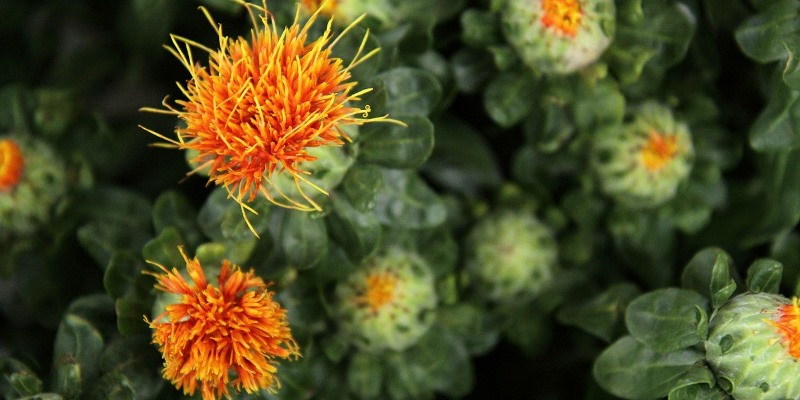
Safflower (Carthamus Tinctorius) is an herbaceous, thistle-like plant. The oil, which is rather similar to Sunflower oil, is derived from the seeds of the flower. It’s one of mankind’s oldest cultivated crops, already harvested in Mesopotamia, probably as early as 2,500 BCE.

Traditionally, Safflower is used to color and flavor food, to make dyes, as medicine, for cooking, in dressings, and to produce margarines. Globally, India is one of the largest producers of Safflower seeds.
In Ayurveda, it’s also used for massage, notably to balance the Kapha Dosha. The oil contains large numbers of Vitamin E and is hot in potency. It increases heat in the body, making it suitable to use during winters or for those living in cold places.
Safflower oil is considered very beneficial for the skin, because it stimulates collagen production and skin cell renewal, it unclogs pores, reduces inflammation, protects from free-radicals, improves elasticity, and balances out a too oily skin.

 Find themed health, wellness, and adventure holidays around the world.
Find themed health, wellness, and adventure holidays around the world.




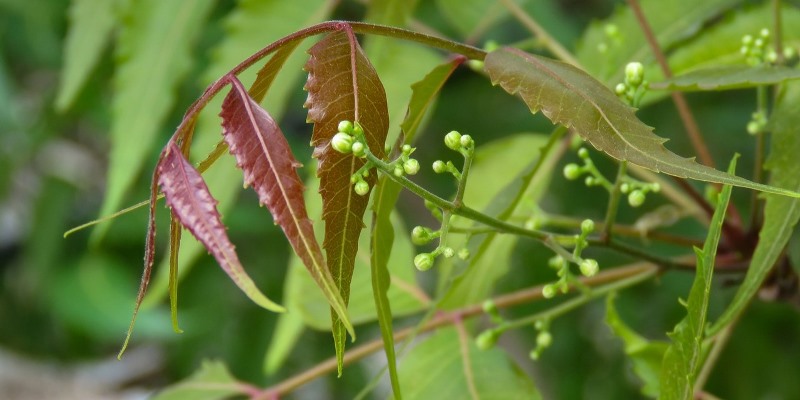

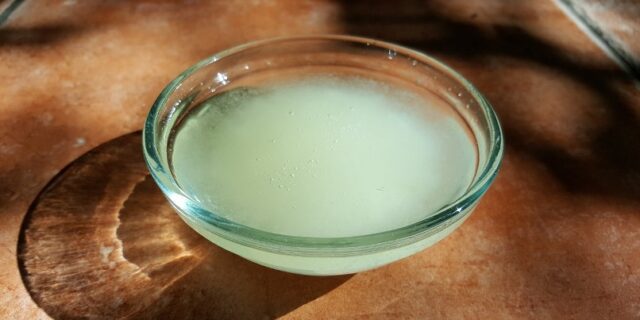
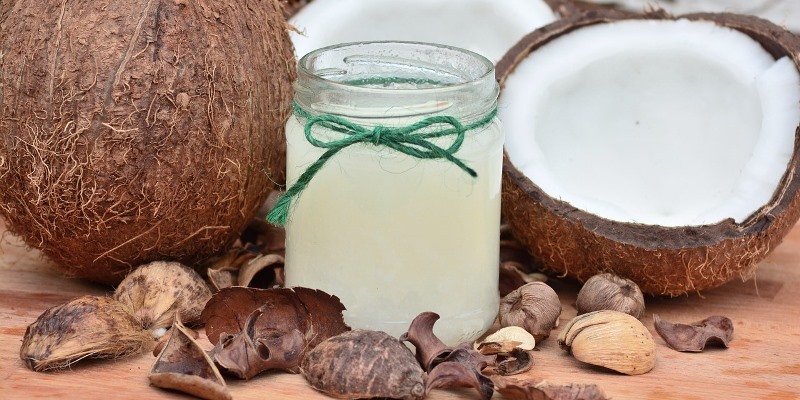

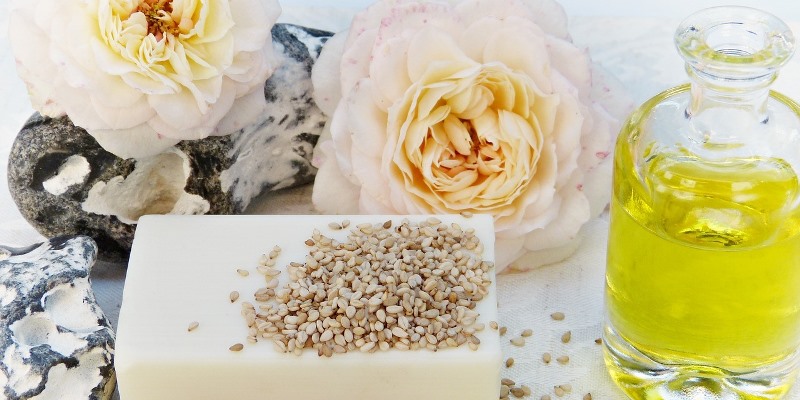
 Find themed health, wellness, and adventure holidays around the world.
Find themed health, wellness, and adventure holidays around the world.